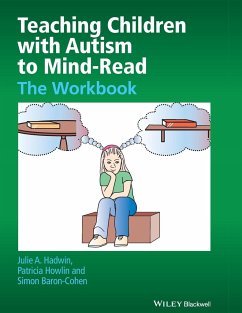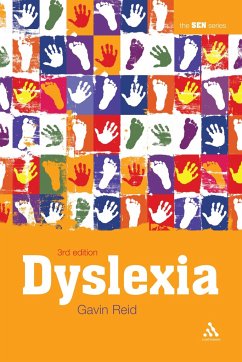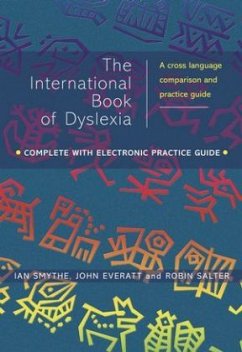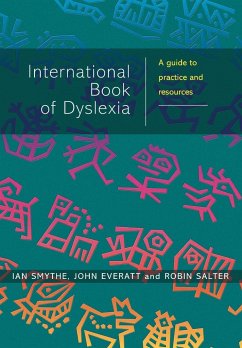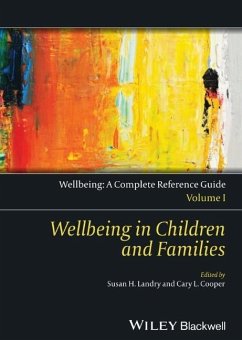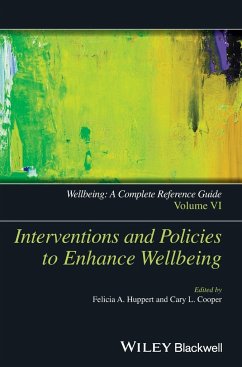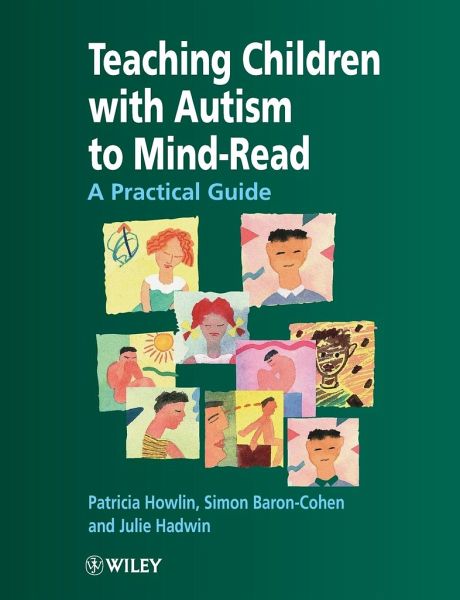
Teaching Children with Autism to Mind-Read
A Practical Guide for Teachers and Parents
Versandkostenfrei!
Versandfertig in 2-4 Wochen
55,99 €
inkl. MwSt.

PAYBACK Punkte
28 °P sammeln!
Das erste praxisorientierte Buch über die Anwendung der "Gedankentheorie" bei Kindern mit Autismus. Der Schwerpunkt liegt auf der wirkungsvollen Behandlung sozialer und kommunikativer Abnormitäten bei Kindern mit Autismus mit Hilfe der Gedankentheorie (auch als "Gedankenlesen" bezeichnet). Hier geht es um die Fähigkeit, den Gemütszustand (Gedanken, Einstellungen, Wünsche, Absichten etc.) anderer zu erfassen und die Fähigkeit, mit dieser Information zu ergründen, was sie sagen wollen, ihr Verhalten sinnvoll zu deuten und vorauszusagen, was sie als nächstes tun werden. Ein unverzichtbares Buch für alle, die in diesem Bereich arbeiten. The difficulties experienced by children with autism and related conditions in inferring the thoughts, beliefs, desires and intentions of others are well documented in numerous studies. It now seems that these deficits underlie many of the social and communication problems that are characteristic of autism.
The difficulties experienced by children with autism and related conditions in inferring the thoughts, beliefs, desires and intentions of others are well documented in numerous studies. It now seems that these deficits underlie many of the social and communication problems that are characteristic of autism. Teaching Children with Autism to Mind-Read explores the relationship of "theory of mind" deficits to other areas of children's functioning and describes existing experimental work that has attempted to enhance the skills associated with understanding others' minds.
Drawing on their own intervention programme, and providing detailed information about the teaching materials and strategies they use, the authors provide practical guidelines for helping children with autism spectrum conditions to improve their understanding of beliefs, emotions and pretence. The authors tackle specific problematic issues including:
_ how to interpret facial expressions
_ how to recognise feelings of anger, sadness, fear and happiness
_ how feelings are affected by what happens and what is expected to happen
_ how to see things from another person's perspective
_ how to understand another person's knowledge and beliefs
This easy-to-follow graded teaching guide is of particular relevance to special needs teachers, educational and clinical psychologists, speech and language therapists, and carers of children with autism spectrum conditions.
Drawing on their own intervention programme, and providing detailed information about the teaching materials and strategies they use, the authors provide practical guidelines for helping children with autism spectrum conditions to improve their understanding of beliefs, emotions and pretence. The authors tackle specific problematic issues including:
_ how to interpret facial expressions
_ how to recognise feelings of anger, sadness, fear and happiness
_ how feelings are affected by what happens and what is expected to happen
_ how to see things from another person's perspective
_ how to understand another person's knowledge and beliefs
This easy-to-follow graded teaching guide is of particular relevance to special needs teachers, educational and clinical psychologists, speech and language therapists, and carers of children with autism spectrum conditions.





